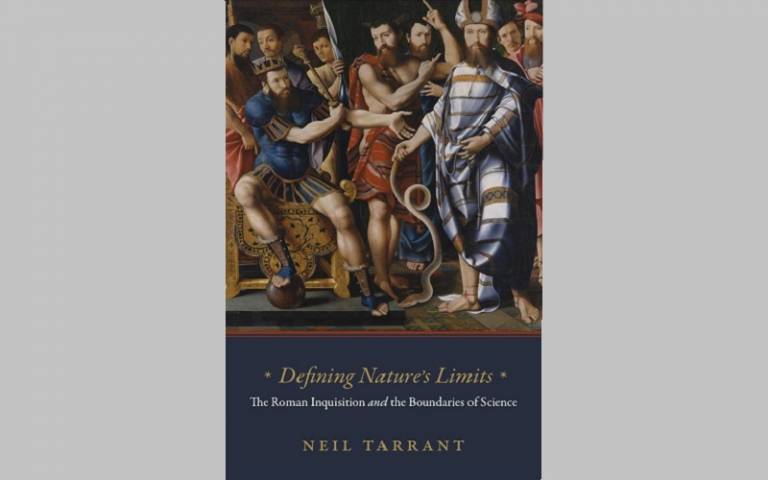EME IN-PERSON Defining Nature’s Limits: The Roman Inquisition and the Boundaries of Science
09 March 2022, 5:30 pm–7:00 pm

Neil Tarrant (Research Associate CREMS, University of York) discusses his forthcoming monograph, Defining Nature’s Limits: The Roman Inquisition and the Boundaries of Science (The University of Chicago Press, August 2022).
This event is free.
Event Information
Open to
- All
Cost
- Free
Organiser
-
Andrew Campbell
Location
-
235, second floor, Foster CourtUCL, Gower StreetLondonWC1E 6BTUnited Kingdom
Neil Tarrant (Research Associate CREMS, University of York) discusses his forthcoming monograph, Defining Nature’s Limits: The Roman Inquisition and the Boundaries of Science (The University of Chicago Press, August 2022).
The establishment of the Roman Inquisition in 1542 and the subsequent creation of a Roman Index of Forbidden books provided the papacy with novel tools to define and enforce the boundaries of orthodox belief and behaviour. It has been frequently argued that when first established these central organs of censorship were exclusively concerned with policing doctrine and religious practice, and only began to consider magic from around 1580 when the Protestant threat had been eradicated in Italy. In fact, from the outset the Roman Inquisition was deeply concerned with both learned and popular magic. These efforts to combat magic were driven by the mendicant orders which since their foundation had been seeking to eradicate such ideas and practices as part of a wider programme of pastoral reform. The pursuit of magic – both learned and popular – gathered pace during the observant reform movement of the fifteenth century, when the mendicants combatted superstition through preaching, hearing confession and the practice of inquisition. The mendicants shaped inquisitorial practice by introducing a series of criteria for defining the boundaries of natural magic that were rooted in the thought of Thomas Aquinas. The mendicants subsequently introduced these criteria into the Roman Inquisition, thereby providing the papal bureaucracy with a single coherent definition of nature's limits. These criteria were imposed, albeit imperfectly, through the network of inquisitorial courts and the Index of Forbidden Books.
In this talk Neil examined how the boundaries created by these criteria enabled philosophers and learned magicians to advance knowledge claims about, and operate within, the natural order, thereby shaping the development of early modern science.
This event was co-organised by Early Modern Exchanges (Institute of Advanced Studies) and UCL Italian dept (School of European Languages, Culture and Society)
 Close
Close

